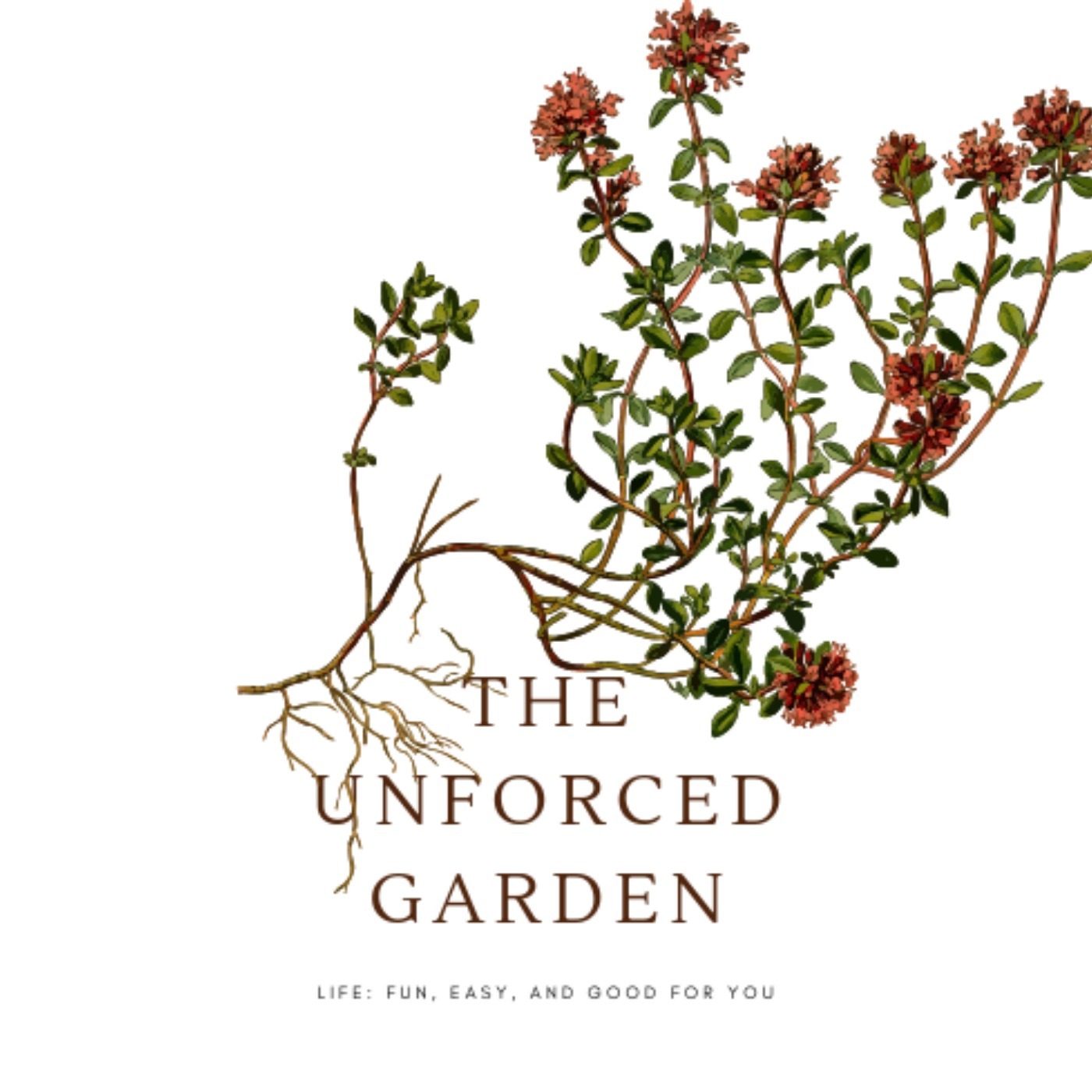Letting Go of What Doesn't Work
4m | May 27, 2019Now that you know the first two skills of living an Unforced Garden Life, what is the reverse of that? Learn about the other side of these two skills in this episode.
Transcript:
So, living an Unforced Garden life takes two skills. 1, noticing the good things that naturally arise and, 2, valuing and prioritizing them.
The other, necessary skill, that co-exists with these two practices is the reverse: noticing what isn’t a quote unquote good thing for you, in your situation, and allowing that thing to fade away from your life. Maybe not forever. Maybe not all the way gone. But gone enough to let the good things thrive.
But it can be blisteringly hard work to figure out what’s a good thing and what isn’t. I think that first, it’s helpful to clarify that something can be good - wonderful, in fact - and just not naturally arising.
Think about plants in a garden. Each garden site has its own type of sunlight exposure, moisture, and soil type. Some plants will thrive easily it one garden’s situation but won’t in another’s. And there are many other variables beyond moisture, sunlight, and how hard or soft the soil is - what about how alkaline or acid the soil is? Which animals live nearby that eat garden fruits? How many times a week does the gardener enjoy going outside to groom the garden?
An Unforced Garden is one where the gardener promotes the plants that do well in that one particular garden and allow the ones that don’t work easily to fade from their sphere of importance and effort. Maybe pansies do well, or perhaps lantana, or maybe a prone rosemary, or, maybe, a sweet potato vine. There are many options.
The one that works will little or no effort on the part of the gardener - and brings joy, and contributes to the beauty or utility of the garden - wins. Let’s say the prone rosemary does well, but not the lantana, pansies, or sweet potato vine.
Hm. Prone rosemary. It’s good groundcover. You can use it as a culinary herb. And it’s hardy and low maintenance. It’s a good thing. That prone rosemary is a good thing in this garden. But it might not be in the garden down the street, literally three doors down, where sweet potato vines do well. That’s fine. Sweet potato vines are lovely but they’re not necessary for a satisfying and fulfilling garden.
So, here’s your homework for this week. Notice one thing that doesn’t work particularly well in your life. Something that causes you too much stress, or leaves you upset, or causes you to work an unsustainable amount. Let that fade in importance. Perhaps you can schedule an event less often, call up that friend and let her know you won’t be able to babysit her kids every week anymore, refrain from volunteering at the next PTA event, stop working overtime at a job you hate, or stop dating the person who keeps blowing up your phone with drama. Let it go, let it fade, let it die on the vine. And focus on a truly good thing in the garden of your life instead.
That’s the end of this episode. If you enjoyed it, please share it with a friend.
Support this podcast at — https://redcircle.com/the-unforced-garden-a-new-method-of-life-design/donations
